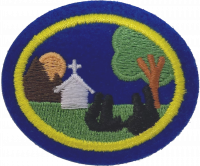Especialidades JA/Aprecio del sábado/Requisitos
Nivel de destreza
1
Año
2021
Version
16.11.2024
Autoridad de aprobación
División Norteamericana
1. Describir brevemente lo que significa que Dios creó, bendijo y santificó el sábado. (Génesis 2:1-3).
2. Contestar las siguientes:
- a. Según la Biblia, ¿cuándo comienza y termina el sábado?
- b. ¿Cómo prepararse para el sábado el viernes ayuda a aumentar los beneficios del día de reposo?
- c. ¿En qué se diferencia la comprensión de la denominación adventista de las horas del sábado de la de los judíos religiosos?
3. Comparar el cuarto mandamiento en Éxodo 20:8-11 y Deuteronomio 5:12-15. ¿Cuáles son las similitudes y diferencias que se notan? ¿Qué consideró Moisés los beneficios de guardar el sábado? ¿Qué beneficios se pueden ver todavía hoy en día?
4. En un grupo pequeño, leer Isaías 58:13 y 14. Discutir lo siguiente:
- a. ¿Cuáles son algunas de las actividades que usted y su familia realizan durante las horas del sábado?
- b. ¿Por qué escoge hacer ciertas actividades sobre otras?
- c. ¿Qué «pasos de evaluación» usa/podría usar para determinar el valor/los inconvenientes de participar en una actividad en sábado?
5. En un grupo pequeño, leer Lucas 14:1-6. Discutir brevemente lo que Jesús enseñó acerca del sábado en este versículo.
6. Leer al menos cuatro historias acerca de Jesús y lo que hizo en sábado. Hacer una lista de cuáles de sus acciones mostraron 1) compromiso con Dios, 2) adoración a Dios 3) y servicio a Dios. Pensar en sus experiencias de la vida actual o en otras personas que conoce y categorizar esas historias de la misma manera.
7.Briefly explain the tradition of attending church services on the Sabbath.
- a.
How did Jesus participate and worship at the synagogue on the Sabbath?
- b.
How do you feel about attending church services? Explain why you feel that way.
- c.
What makes gathering together on the Sabbath meaningful to you?
Interview a long-time Sabbath-keeping Christian by beginning with the following questions:
- a.
How did Jesus participate and worship at the synagogue on the Sabbath?
- b.
How do you feel about attending church services? Explain why you feel that way.
- c.
What makes gathering together on the Sabbath meaningful to you?
- d.
What makes gathering together on the Sabbath meaningful to you?
9.
Review your experiences in preparation and celebration of the last two Sabbaths. What changes, if any, would you make in these areas to make your observance of the Sabbath a more enjoyable experience?
10.
Illustrate through a drawing, origami, sculpture, or an art form of your choice a favorite scene of the Sabbath.
11.
Role-play an experience of someone inquiring about the observance of the Sabbath. Briefly discuss your approach and the information you could share to make the experience more meaningful.
12.
Individually or as a group, complete two of the following on a Sabbath since starting this honor:
- a.
Visit someone in the hospital or nursing home.
- b.
Identify and visit a church member who has not attended church for some time.
- c.
Organize and participate in a nature walk.
- d.
Use social media to reach out to family or friends offering to pray for them.
- e.
Participate in a Global Youth Day event.
- f.
Invite someone into your home to share a Sabbath meal.
- g.
Another activity as approved by your instructor.
13.
Research how observant Jews welcome and end the Shabbat. With your family or group, incorporate several of these customs for special ceremonies to welcome and end a Sabbath. The customs could include, but not be limited to special meals, songs, readings, special prayers, and candles. Evaluate and summarize the experience and what was most meaningful to you.


